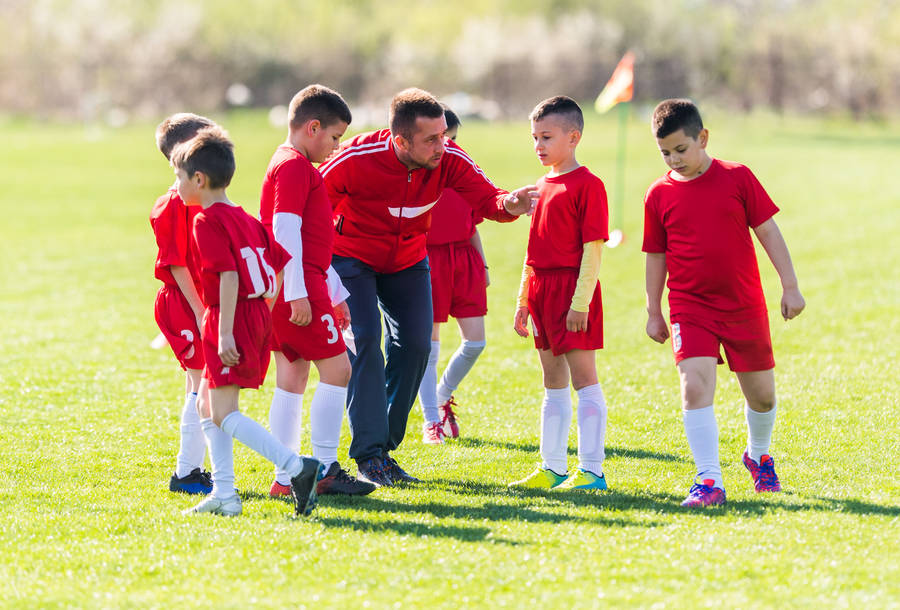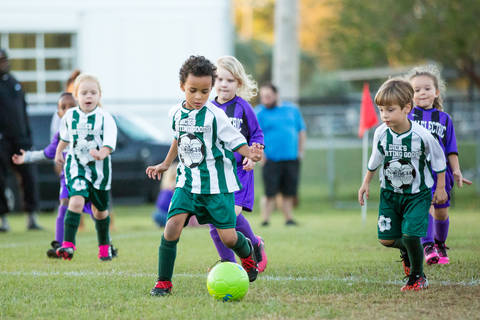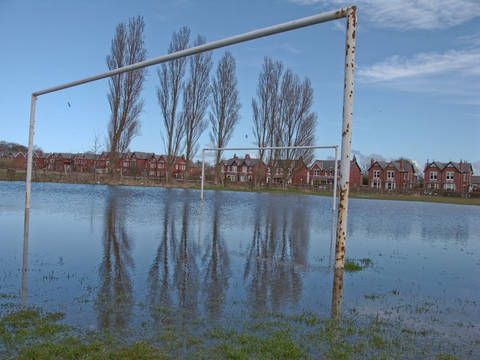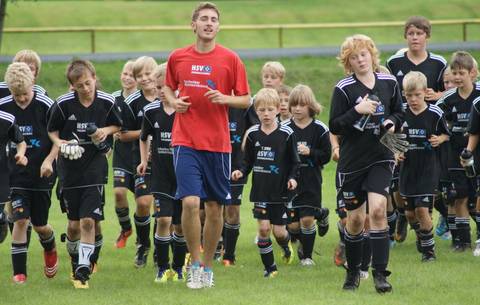
As we know, it’s not untypical to find yourself as an ‘accidental’ coach of your child’s Junior Football team and that actually it can be a fantastic and rewarding contribution that many parents make to support their children and their community.
Most parents take on duties as coaches and quickly develop their skills as they gain experience and qualifications along the FA Coaching pathway.
There is a wealth of support and material out there to support you on your own coaching journey although it’s important not to lose sight of the real purpose behind why we do it.
It’s not really about emulating the Guardiolas or Klopps, it’s about something else entirely. A combination of engendering a love of the game, enjoyment in what they do, improvement in their play but also the opportunity to pick up on all of the life lessons and skills that Junior Football provides.
After their parents and teachers, it could be that you have been elevated into the next most important position of influence in the life of a young grassroots football player.
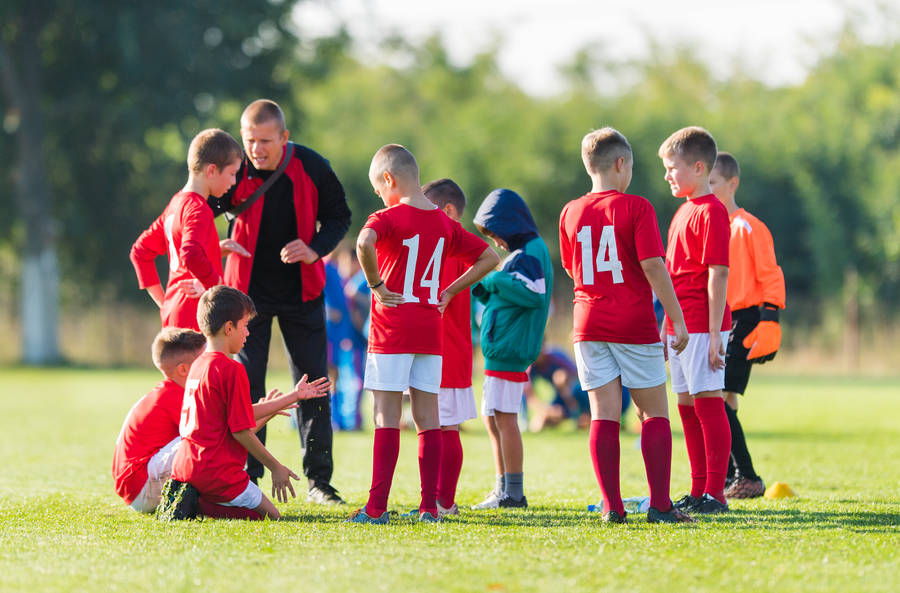
I once met and got talking to a professional football Manager who had previously been a youth coach at all levels within professional Academies and didn’t waste the opportunity to pick his brains on a number of topics.
I knew he had worked with a number of players who had gone on to have successful careers at all levels of the game with a couple even playing for England U21’s and the full National side.
When I asked him which of his player’s journeys he was most proud of, he surprised me by saying, “It was a lad who at 15 years of age had all sorts of difficulties in his life. He had problems with drink and drugs and had got into debt. He’d got some really bad influences in his life away from football and had started to get involved in petty crime to pay off the people he owed. To top things off he’d just become a Father at 15 years of age.”
“My job was to develop footballers but I knew I had a duty of care to him. I got him the help he needed, he came off the drink and drugs and straightened himself out. Whilst he never played professionally, he was able to carve out a good career at semi-pro level and got a steady job which meant he was able to support his young family.”
“I look back on him as my biggest success.”
In years to come it’s unlikely that any of the players you are coaching will have made it as professional players, that’s just the nature of the numbers.
But you can still have a major influence on their own success in life.
Will you have helped them to develop life skills such as being able to work as part of a team, healthy self-confidence, leadership and resilience?
Will they look back on their time with you positively and regard you as a good influence on them?
The answer to that is wrapped up in how you go about your coaching and management of the team.
One of the most damaging inhibiters for junior football coaches in this respect, is the belief that they must win.
Many coaches believe that the results are a reflection of themselves and that winning as many games as they can is crucial but actually this often inhibits the opportunity for learning and growth of the Junior Footballers they are looking after and affects their outlook way beyond their experience of Junior Football.
It’s only natural to want to win and instilling a hunger and passion for winning is one of those important life skills I referred to earlier but winning at all costs, with all that goes with that can have a very damaging affect.
The number one role of the coach isn’t to win, it is to create an environment that young players love to train and play in, enabling them to improve.
The more they enjoy their training and development, the more they improve and the more likely they are to recognise and repeat this cycle through their lives.
Most players will develop a love for training and the game naturally if it is something they enjoy doing.
It can be encouraged and supported but it cannot be forced. The number one reason why players drop out of playing the game is because they feel over-pressured by coaches and parents to win.
Much better to enable their enjoyment rather than kill their love of it by making training boring through excessive structure and control or by putting too much pressure on the result rather than focusing on improvement.
Young players learn best when they are challenged and make mistakes. Too many coaches and parents believe that perfection is what’s needed and that pure repetition is the basis for learning.
There is some truth in this although learning is accelerated when coaches are able to challenge young players and encourage healthy mistakes.
Training drills should not be too easy and not too hard but find a healthy balance with opportunities to challenge players to make decisions under pressure so that they make mistakes and learn, but not make it so hard that confidence is drained away.
The error rate in training should be the same as games and training drills should not seek perfection but reflect the natural decision making that occurs in a match.
Training time is precious and should be maximised so that the players touch the ball as many times as possible and make as many decisions as they can in the time available.
It’s vital to rotate players in games. Coaches often prefer putting their best players in the most influential positions which is wrong from an enjoyment perspective as well as a development point of view.
I think it’s important for coaches to have the self-restraint not to label players as positions, and allow them to rotate for as long as possible.
Coaches should provide positive, and constructive feedback, specifically for the purpose of learning.
Standing at the side and screaming at players, giving big, self-indulgent speeches that take up all the training time or before games, and overloading the kids with complex feedback may boost your ego but doesn’t teach them much.
It’s better to focus on a couple of key learning points per game and recognise that young footballers learn over time.
Parents and coaches should not place any pressure on young players to win or be the best player.
I find it’s better for parents to not even discuss winning or losing or whether their child is the best player.
It’s much better to encourage questions like, “Did you enjoy today” or “What did you most like about training”.
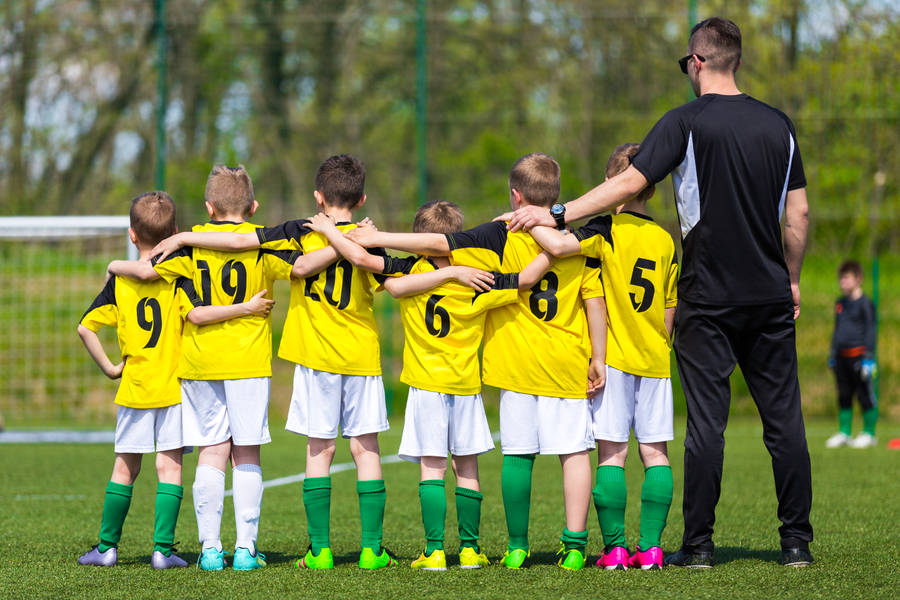
Feedback should try to focus on the process and not the result. Many coaches focus only on outcomes.
I’ve lost count of the times over the years that a hopeful punt forward has sailed over the top of a young goalkeeper and into the goal and watched coaches laud this as a ‘great goal’, when in fact it was a poor choice of pass.
Young players can’t learn from feedback that only focuses on outcomes and the message they receive is that they’re great when they win and when they don’t they’re a disappointment.
Some parents think this creates resilience by hardening kids for life’s future set-backs although in reality this couldn’t be further from the truth and it sets the young players up to feel like a failure when they make mistake, and ultimately have a fear of this failure.
Young people with a fear of failure stop taking risks in their lives and when they fail they take it personally rather than learning from the experience.
Resilient people and high performers don’t fear failure because they don’t focus on it.
High performers focus on the process and focus on learning and improving. It’s what leads to a growth mindset which focuses on improvement rather than perfection.
Coaches should focus on the process not the result. In fact, many great coaches don’t even discuss the result and just focus on the process and getting better each week. Processes are the things that young players have some control over.
There’s a great saying in football, “talent only counts when everything else is equal”.
Put simply passion, perseverance and a growth mindset always overtake talent yet how many coaches overlook players with these attributes in abundance for players they believe to have greater talent?.
I understand that Junior Football coaches want to win games, it’s only natural to some extent. It’s so easy to fall into the trap of being ‘that coach’.
But you shouldn’t lose sight of the effect you have over the lives of the young players and the influence that will extend long beyond their experience of Junior Football.
Will they continue to learn through their lives because they make it enjoyable and focus on the process of improvement over the result?
Will they give and receive constructive feedback that enables them to take positive actions?
Will they not be afraid to try new things and make mistakes from which they can learn?
Will they look beyond superficial talent and recognise the value of passion and perseverance?
If the answer to those questions is yes, then you can rightly call yourself a positive influence.

